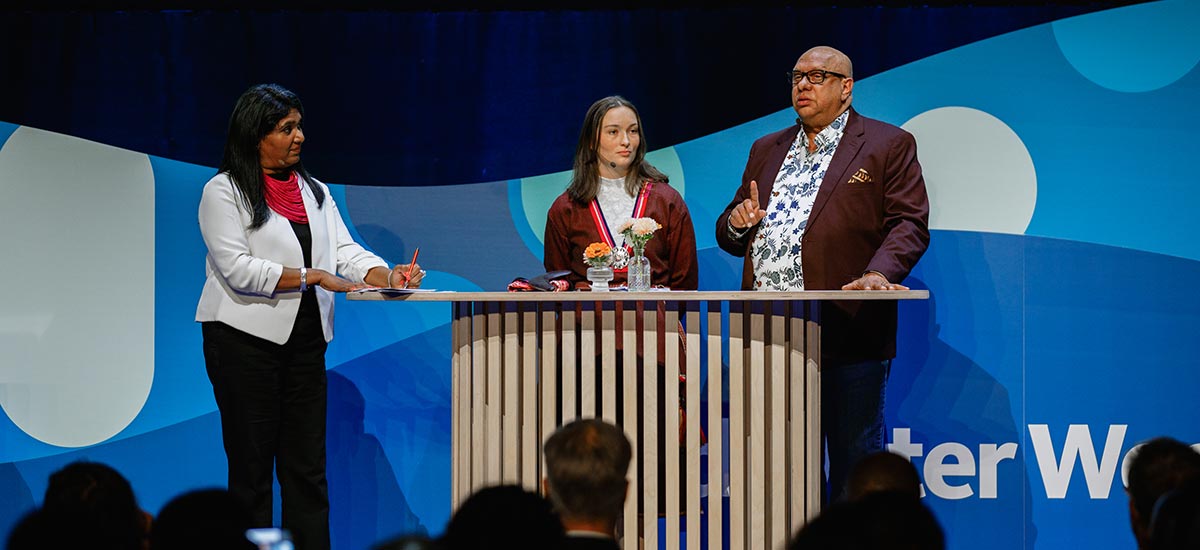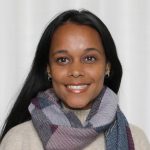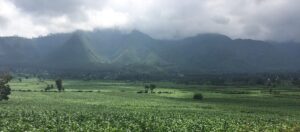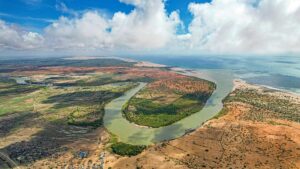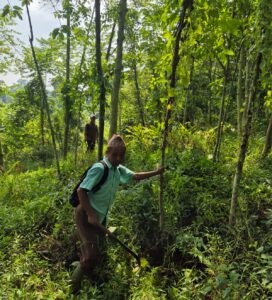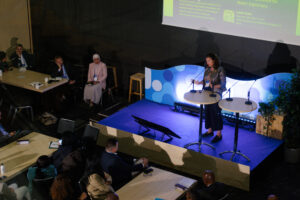Indigenous Peoples’ knowledge to break down borders and challenges
“The concept of borders is made-up and not something that naturally exists. It stops us from working together, and it is something we need to work against. That's why I think that the theme of this year is so important. In the end all of us are striving for the same goal: an earth we can live on with good waters and lands.”
How does or how can indigenous knowledge bridge this generational gap that we face today?
Phil: From my Indigenous perspective in Australia our stories are handed down to future generations. I am considered an Elder among my people and family, and I have the wonderful opportunity to not only hand down knowledge but to also learn from young people. It is about communication and respect, that is the foundation of life in any field.
We need to invest in tomorrow’s water and community leaders. For World Water Week 2025 we should have an Indigenous youth forum which could be a very fruitful gathering.
In your experience, are the younger generation open to receiving the knowledge from Elders or is there a tension given how fast-paced the world has come to be?
Aana: We as Indigenous Peoples have the thought of “us”, both elders and young people together and there is no border between us. We work together to minimize hierarchies, and the Elders see the youth as the future and at the same time as reflections of the past. They know that it is important to include us in both discussions and decisions, while also teaching us. We are a mirror of what has been and what’s to come.
“Three years ago, there were only five Indigenous Peoples represented at World Water Week, this year there are significantly more, the numbers are amazing. So, we have bridged that border of representation and the opportunity to amplify Indigenous Peoples’ voices globally.”
Who needs to take responsibility to include Indigenous voices and use water as a tool for peace?
Phil: Global water systems are increasingly stressed by human and industry demands. The majority of our river systems are being dominated and degraded which means that the environment can no longer play its role in providing the ecosystem services that humans rely on.
I believe that the industry needs to have goodwill to look beyond engineering structures and look at what’s best for country and people first. How can the industry become inclusive and bring other people to the table for conversation? There are many opportunities to look at what we can achieve through multiple lenses.
We Indigenous Peoples exist in harmony with our cultural landscapes and keep tabs on water, and our ability to do so is intrinsically linked to our emotional health and longevity of life.
Aana: Those who need to take action are those in higher up positions of decision making. We Indigenous Peoples have our entire future at stake, and we are doing as much as we possibly can.
I work with Sámi health and Indigenous health topics, and I can see that these [environmental] challenges take everything from us. This is because our voices are not getting heard nor our knowledge respected.
You both live on opposite sides of the world – do you see any common challenges and solutions?
Phil: We need to be respected as community leaders. Our knowledge and role should be recognized as key to [water and peace issues] and that we want to play that role. What works in Sweden may in many ways work in Australia too. There needs to be stronger platforms for such knowledge exchange, for us to share it globally and integrate that into decision making arenas on water management to take away conflict.
Aana: A common challenge is that our voices are not present in higher positions where we can influence decisions that affect us. Another challenge is of sustainability of water and keeping its good quality, while having access to it.
About common solutions, meeting other Indigenous during previous World Water Week conferences has made me bring home many thoughts on how other systems work and how they get influence over decisions. I have also learned about the importance of working together with the water sector – I think all Indigenous Peoples agree that we need open communication to be able to move forward.
